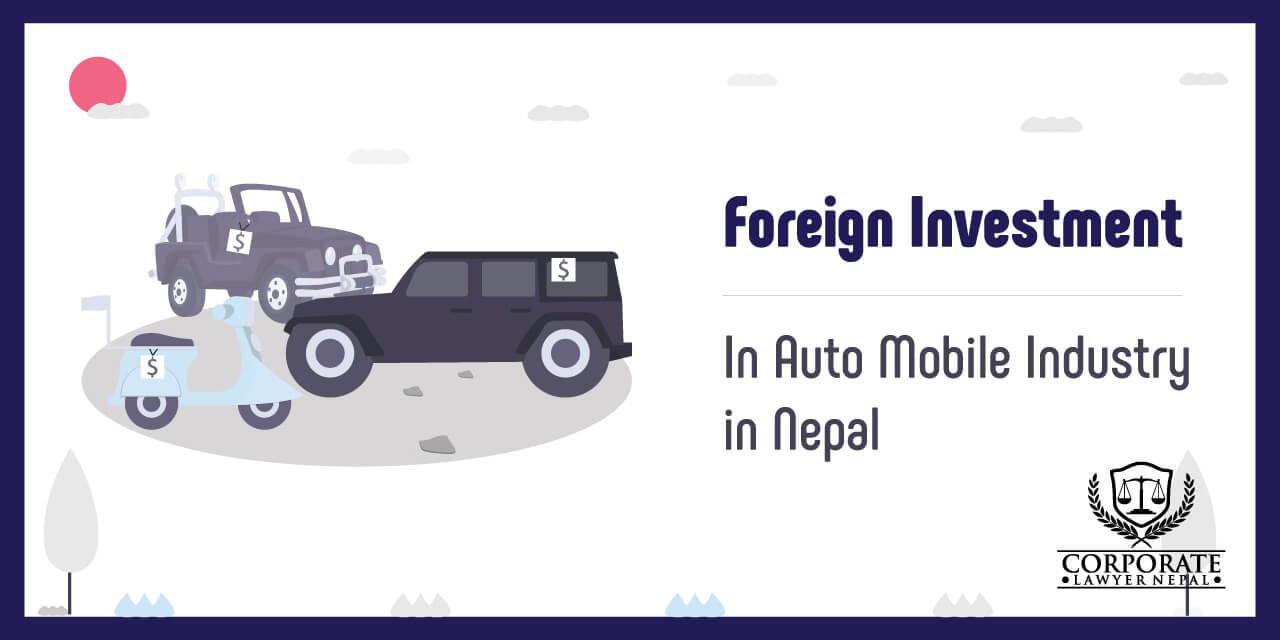Automobiles and private vehicles are considered luxurious modes of transportation in Nepal and are taxed heavily. Once-luxurious modes of transportation become necessary as people’s living standards rise.
Because of changes in subsistence and habitat, goods that were once considered luxuries, such as before cell phones, Wi-Fi networks, high-definition television sets, automobiles, and laptop computers, have become necessities.
Another important mode of transportation is the automobile. The automobile industry is currently undergoing a fundamental transformation. The majority of countries, including India, China, and Nepal, intend to prohibit the sale and registration of all gasoline and diesel vehicles by 2030.
The majority of countries are now implementing their respective transportation policies in order to achieve a zero-emissions target and shift toward clean mobility. In the automobile industry, Nepal has permitted 100 percent foreign direct investment. Nepal has the world’s largest untapped market, particularly in the two-wheeler motorcycle segment.
Motrex, a South Korean vehicle accessory manufacturer, and Hyundai Company have already been approved by the Nepal Investment Board (IBN). Motrex’s business plan called for an initial investment of Rs 10.54 billion in Rupandehi’s Motipur Industrial Park to establish an auto assembly plantHulas AutoCraft, a Golchha Organization company, has established a Bajaj Discover assembly plant in Ramgram, Nawalparasi. Over the last two decades, the company has also distributed Bajaj two-wheelers in Nepal via one of its subsidiaries, Hansraj Hulaschand and Company (HH Bajaj).
Shanker Group, which has economic interests in the steel and cement sectors, is already working with a Rs one billion investment to establish an assembly plant in Birgunj, Nepal, to manufacture TVS two-wheelers. Laxmi Intercontinental intends to invest Rs 5.10 billion to build a Hyundai assembly plant in Ramgram Municipality-6, Nawalparasi.
Reasons to Invest in the Automobile
It is advantageous in Nepal for the reasons stated below:
1. Cost Savings in the Assembly Industry
The tax on fossil-fuel vehicles in Nepal is 260 percent. If you invest in Nepal and manufacture cars there, it will be less expensive. This enables you to produce at a lower cost while still profiting. Similarly, the Nepalese government has levied an excise tax of 10%, a VAT of 13%, and a customs duty of 0% on electric vehicles. If you establish an electric vehicle assembly plant, you are not required to pay excise duty. It is estimated that automobile demand in Nepal has grown at a rate of 25% over the last decade. Every year, 300,000 vehicles are registered in a single calendar year. In such cases, manufacturing in Nepal is advantageous.
2. Capitalize on underserved markets in India, Nepal, and Bangladesh.
Automobiles and mobile phones are in higher demand in developing countries than in developed countries. In Nepal, there is one car for every 1,000 people
And in India18 people per 1000 own vehicles. As a result, there are fewer private cars in Nepal, India, and Bangladesh. The income curve in this sector, on the other hand, is rising as the size of the lower-middle class, emerging middle, middle, and upper-middle classes grows as the economy transitions from developing to developed.
The general public’s purchasing power is increasing. As a result, owning a private car is becoming increasingly common and in high demand. Because of the stated demand, investing in Nepal will allow you to sell cars in large quantities. In America, 809 people out of every 1000 own a private vehicle, indicating Market Saturation.
There will be no demand for private vehicles in such a case. Investing in Nepal and producing automobiles will help Nepal, India, and Bangladesh meet their auto demand. As economic growth expands across demographics, mobility will no longer be a luxury for Nepalis.
3. Subsidies from the Government
Nepal imports $200 billion in oil each year. The government has spent a significant portion of the foreign funds set aside (Balance of payment). However, during the monsoon season, electricity in Nepal has both surpluses and deficits. If an electric vehicle manufacturing company is established, and electric vehicles are used as the primary mode of transportation, money spent on oil imports will be saved, and electricity generated in Nepal will be used, which is beneficial.
For example, the government provided free land to the Tesla Company of the United States that planned to establish an electric vehicle company in China. If a foreign investor submits a proposal to the Nepalese government, the government will offer free land and may waive taxes.
4. Banking policy in Nepal
The manner in which Nepalese consumers purchase vehicles also distinguishes the Nepali auto industry. Almost 90% of new vehicle purchases are financed through bank loans. Banks in Nepal have made attractive bank loans available to people who want to buy electric vehicles in Nepal. There are numerous banks in Nepal, and they have made significant investments in auto loans, resulting in high demand for the Nepalese automobile industry.
5. Low-Cost Labor Force
Agriculture currently accounts for 25% of Nepal’s GDP but employs more than 60% of the population. Currently, Nepalis have traveled to the Middle East countries and are working in manufacturing industries.
Nepalis work in the automobile industry in India as well as other countries. Every year, a large number of mobile engineers and electrical engineers are produced. Human resources, as previously mentioned, are paid pittances. As a result, labor costs fall, which benefits foreign investors.
6. International labor policy
Nepal’s foreign labor policy is straightforward. It is now easier for foreign investors to bring in foreign exports into the country. Foreign investors’ investment in the automobile industry is secure because it is easier to bring in foreign workers into the country.
7. Assistance with Infrastructure
Despite significant progress in the construction of new roads, highways, and expressways, as well as supporting infrastructures like roads and power plants, infrastructure growth has lagged behind rising demand. It is critical to recognize that infrastructure is a major driver of growth in the automotive industry. As a result, it has created a favorable environment for automobile investment.
8. Amendments to labor laws
The recently passed Labor Act of 2017 (2074) includes labor law provisions that benefit industries. Strikes are now prohibited in Nepal as a result of a new law. Employees who take part in a strike are subject to the company’s hiring and firing policies.
9. Reform of the taxation system
To encourage foreign investment, the government has implemented tax reform policies. To remain competitive, we must reconsider our tax reforms, and the company is exempt from excise duty while it builds infrastructure.
10. Finance in Banking
In Nepal, there are 27 commercial banks. If Nepalese commercial banks are asked to make bank loans, they will do so at a low-interest rate, and foreign investors interested in investing in the automobile sector will help with capital formation.
11. Accommodation at a low cost
The cost of accommodation is low because the dollar’s exchange rate with the Nepali currency is low. It also lowers operating costs and facilitates capital formation for foreign investors interested in investing in the automobile industry.
Conclusion
The automobile industries in Nepal are entirely foreign-invested. If you want to invest in Nepal, Corporate Lawyer Nepal will provide you with legal assistance from the beginning and will guide you through the investment process. If you would like to retain our services, please contact us at +977-9849517735 or by email: info@corporatelawyernepal.com
Alpana Bhandari is a founding partner and CEO of Prime Legal Consultants and Research Center. She graduated from American University Washington College of Law. She specializes in corporate/arbitration and family law.


2 Comments
Fabulous analysis and information.
It will attract the manufacturers so some extent definitely.
All the best
Thank you!
Write a Comment
Recent Posts
Categories